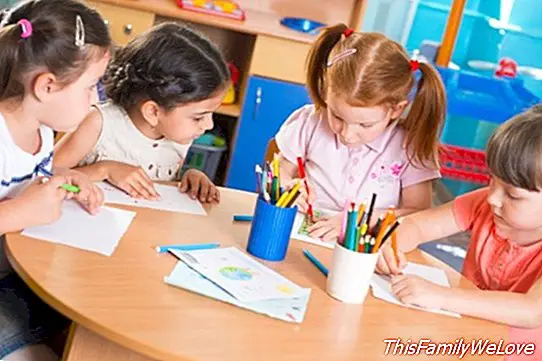Misspellings in children, when are they normal?

When it is written, it must be done correctly. However, everything in this life has a period of learning, and the orthography It was not going to be less. Everyone has had spelling mistakes as a child, and the important thing is to learn not to commit them but taking into account that in many occasions they are normales.
In general, children and adults who commit spelling mistakes they have most of their errors related to the use of the h and the differences between "b" and "v" and the "g" and "j". In addition to this, there are certain words that seem to be harder to learn, such as "go" or "fence" or the eternal "dilemma" between "ay", "there" and "there".
It is complicated to ensure scientifically when the child should write without spelling mistakes, so it is best to attend school curriculums because, even if it is approximate, they will tell us at what age the child knows what about spelling (Provided they do not have problems like dyslexia). For example, if it is 10 years old when they are taught the use of punctuation marks, it will be from this age when we can require them to put the periods and commas when in their place.
Spelling in children between six and seven years
In the first years of Primary Education, the teaching of spelling is oriented to the so-called "natural spelling", that is, those sounds that are written differently according to the letter that accompanies them. For example, at this age children learn that the sound of the phoneme / k / has two ways of writing: on the one hand the "c" of the house and, on the other, the "qu" of cheese.
Grammar in children up to nine years
Between third and fourth of the first one enters to study the spelling as such and children must learn the most important and basic rules. It is between the ages of eight and nine when the children learn that orthography that we all remember by heart: "all the verbs ending in" bir "are written with" b ", less" boil "," serve "and" live "", for example.
Also, in these courses you learn the accentuation rules: words like "cajón" are accentuated by being sharp ending in "n", while others like "Madrid" do not.
Spelling and punctuation from the fifth grade of Primary
When children are 10 years old, school begins to be more demanding in terms of spelling mistakes, so that parents can also be. In fifth grade, children should know what they are the diphthongs and how they are accentuated, at least in a general way (since it will continue studying in the following courses).
Also, it's at this age when punctuation marks they enter the school curriculum: children must learn to distinguish a comma from a point and, in turn, these two from a semicolon, among others.
In this way, a child with five years write words like "bibir" is completely normal, whereas if he continues with that lack of spelling when he is eight years old he should be corrected so that he stops committing it.
If you notice that our son has many misspellings, the best thing is to encourage him to read so that he gets used to the form of the words. In the case where the faults persist, the advisable thing is talk to your teacher to devise a strategy jointly. Of course, always with Patience and good humor: the spelling has to be learned and we can not make our son end up "catching mania".
Angela R. Bonachera




